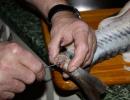Способы выражения будущего времени в английском. Теория и упражнения
Время Future Simple в английском языке используется для обозначения действий, который произойдут в будущем. Помогут лучше понять будущее простое время в английском языке упражнения, с помощью которых можно научиться строить правильные предложения и задавать вопросы. Но сначала нужно обратить внимание на правила употребления и образования этого времени.
Обычно время Future Simple передает незапланированные действия, которые должны произойти в ближайшем или неопределенном будущем. Как правило, решение о совершении таких действий принимается непосредственно в процессе разговора, спонтанно.
Например:
I will call you. - Я тебе позвоню. (Решение о звонке пришло во время общения, оно не планировалось заранее.
Кроме того, Future Simple используется для выражения прогнозов (предположений) на будущее, обещаний и намерений.
Запомните! Время Future Simple никогда не используется в придаточных предложениях после if, when, after, before, while, as soon as, till (until). В этих случаях будущее время заменяется на настоящее (Present Simple).
Маркеры (указатели) времени
Простое будущее употребляется с наречиями tomorrow (завтра), next week (на следующей неделе), in 10 minutes (через 10 минут), in 2021 (в 2021 году) и др.
Образование Future Simple
* V1 - глагол в первой форме, то есть в такой форме, в которой встречается в словаре, без каких-либо окончаний.
Например:
I will draw. - Я буду рисовать.
I will not draw. (I won’t draw. - Я не буду рисовать.
Will you draw? - Ты будешь рисовать?
Упражнения на Future Simple
Поставьте глагол в форму будущего простого времени.Составьте из слов предложения.
Come will tomorrow Mary ... come will tomorrow Mary ... come will tomorrow Mary ... come will tomorrow Mary
Not will work next week we ... not will work next week we ... not will work next week we ... not will work next week we ... not will work next week we ... not will work next week we
Go to bed late at the weekend he will ... go to bed late at the weekend he will ... go to bed late at the weekend he will ... go to bed late at the weekend he will ... go to bed late at the weekend he will ... go to bed late at the weekend he will ... go to bed late at the weekend he will
Will the lessons start at 8 o’clock tomorrow ... will the lessons start at 8 o’clock tomorrow ... will the lessons start at 8 o’clock tomorrow ... will the lessons start at 8 o’clock tomorrow ... will the lessons start at 8 o’clock tomorrow ... will the lessons start at 8 o’clock tomorrow ... will the lessons start at 8 o’clock tomorrow
We get next month will married ... we get next month will married ... we get next month will married ... we get next month will married ... we get next month will married ... we get next month will married
Измените предложения, чтобы они превратились в отрицательные (will → will not (won’t).
- We will be late. -
- I will break this vase. -
- People will throw litter in the streets. -
- Lesson will start at 7 a.m. -
- They will have dinner at 8 p.m. -
1.We will not be late. 2.I will not break this vase. 3. People will not throw litter in the streets. 4. Lesson will not start at 7 a.m. 5 They will not have dinner at 8 p.m.
Задайте вопросы к предложениям.
- We will study German. -
- Children will grow up soon. -
- She will be 17 in some weeks. -
- It will rain tomorrow. -
- I will take a bus. -
1.Will we study German? 2. Will children will grow up soon? 3.Will she be 17 in some weeks? 4. Will it rain tomorrow? 5. Will you take a bus?
Переведите предложения на английский язык.
- Мы приедем домой завтра вечером.
- Я напишу список покупок через час.
- Мой брат скоро научится водить машину.
- Я прочитаю все книги из домашней библиотеки за следующее лето.
- Мы полетим на море!
1.We will come home tomorrow in the evening. 2. I’ll write a shopping list in an hour. 3.My brother will learn to drive soon. 4.I will read all the books from my home library next summer 5. We will fly to the seaside!
Напишите 5 предложений о своих планах на день.
Выполняйте упражнения на будущее простое время в английском языке вместе с Lim English . С нами все легко и интересно!
Продолжаем изучать будущее время в английском языке. Упражнения отрабатывают все способы выражения будущего времени, поэтому предназначены для учащихся на уровне intermediate (уровень 2).
Будущее время в английском языке. Упражнения (intermediate, уровень 2)
К каждому упражнению предлагается список ситуаций для лучшего понимания, какой способ выражения будущего времени нужно использовать. Эти тонкости необходимо знать на уровне intermediate изучения английского языка. Научившись различать эти ситуации, вы будете легко справляться с тестами по данной теме.
Упражнение 1. Will vs be going to.
- will
- be going to
1. I’m ill. I_____________(call) the doctor.
2. — Tim has broken his leg and stays at home. — Sorry to hear that. I _________(visit) him tomorrow.
3. It’s Julia’s birthday today. She’s bought much food. She________ (cook) a lot.
4. — My bags are terribly heavy today. — Really? I ______(give) you a lift.
5. — Do you know Kate’s phone number? — I’ve bad memory for phone numbers, but I ______ (look) for it in my notebook.
6. My uncle has bought bricks. He ___________ (build) a house in the country.
7. — Has he decided how to spend the money? — Yes, he ____________ (buy) a car.
8. — Haven’t you taken my key? I can’t find it. — Just a minute. I ____________ (look) for it.
9. — Jack didn’t pass his exam yesterday. — Oh, what ______he ________ (do)?
10. — There is somebody at the door. — I___________ open.
Упражнение 2. Will vs Shall
A. Will vs Shall.
1. I ‘m tired. I … (go) to bed.
2. … I … (answer) the question?
3. I hope this test … (not to take) long.
4. You … (arrive) in Paris tomorrow evening.
5. Do you think that Diana … (come) to the party tomorrow?
6. I strongly believe that there … (not to be) any wars in the world.
7. Dad … (present) Mag a personal computer, … he?
9. The boy …(remember) this day all his life.
10. If I … (be) free tonight, I … (join) you.
B. Will vs Shall.
Употребите один из случаев выражения будущего времени в предложениях. Объясните свой выбор.
1. It’s late. I think I _________(take) a taxi.
2. We don’t know their address. What ______we _______(do) ?
3. Perhaps they ____________(buy) a new house this year.
4. I’m afraid they ___________(not to wait) for us.
5. He ___________(be) fourteen next year.
6. I’m not sure I ____________(find) Jim at the hotel.
7. Everybody thinks they ___________(not to get) married.
8. Do you think it ____________(rain) ?
9.____________ there ____________(be) medicine for every kind of disease in future?
10. When my brother ______________(finish) school, he _______ (go) to college.
Упражнение 3.
Употребите один из случаев выражения будущего времени в предложениях. Объясните свой выбор.
- will
- Present Simple
- Present Continuous — запланированное действие в ближайшем будущем: личная договоренность с людьми.
1. We (have) a party next Saturday. Would you like to come?
2. I (not/go) away for my holidays next month because I haven’t got enough money.
3. The concert (start) at 7.30 in the evening.
4. George, is it true that you (get married) next week?
5. The art exhibition (open) on 3 May and (finish) on 15 July.
6. What time … the next train (leave)?
7. Ann, we … (go) to town, … you (come) with us?
8. I (have) lunch with some businessmen next Wednesday.
9. My Uncle John from America (visit) us soon.
10. The examinations (take place) next month as announced.
Упражнение 4.
Выберите лучший или единственно правильный вариант выражения будущего времени.
- will
- will — спонтанное решение, принятое в данный момент;
- Present Simple — расписание (поездов, самолетов, автобусов, уроков, лекций, фильмов, и т.п.);
- will — в сложных предложениях после союзов времени & условия;
- Present Continuous — запланированное действие в ближайшем будущем: личная договоренность с людьми;
- be going to — запланированное действие в ближайшем будущем: намерение, план.
1. When (do / will) our classes start tomorrow?
2. The train from Liverpool (arrives / will arrive) at 7.30.
3. I don’t think the train (arrives / will arrive) on time.
4. I (will apologize / apologize) if you (will explain / explain) to me why I should.
5. I (will play / am playing) football tomorrow.
6. I (will promise / promise) I (will phone / phone) my granny.
7. We (will go / are going) to St. Petersburg soon.
8. What time (does / will) the bus arrive in Cardiff?
9. Alec (is going to write / is writing) a letter to his parents in the evening.
10. We are having a party on Saturday night. (Will you come / Are you coming)?
Упражнение 5. Will VS be going to
- will — действия в будущем, которые мы не можем изменить, констатация фактов;
- will — предсказание или предположение, основанное на собственном опыте или интуиции;
- will — спонтанное решение, принятое в данный момент;
- be going to — запланированное действие в ближайшем будущем: намерение, план.
1. It ____________probably________(not to rain) in Europe.
2. ______you_______(to come) to my house, please?
3. — Why have you got the flowers? — Because I____________(to visit) my teacher.
4. — I invite you to come to the party. — OK. I___________(to bring) my friend.
5. — I____________(to walk) the dog. — Wait a minute, and I___________(to come) with you.
6. I _________probably never_________(to learn) this poem.
7. I_____________(to stop) smoking.
8. — Have you decided what to buy Alex for his birthday? — Yes, I _________(to buy) him a computer game.
9. I love drawing. I____________(to be) a fashion designer.
10. — How about going for a picnic at weekend? — That’s a good idea. I___________(to make) a cake.
11. — What presents do you think people__________(to give) you next Christmas? — I think my father________(to give) me a book. Somebody___________(to give) me perfume. I don’t think anybody___________(to give) me a laptop.
12. — What _______fashion______(to be) like in the year of 2000? — I’m sure people_______(not to wear) long dresses and suits. Clothes________(to be) comfortable and simple.
13. Next century_________(to begin) on the 1st of January.
14. How long____________(to take) you to do the work?
15. John,________ (to do) me a favour?
16. When______you___________(to visit) your grandma? — Probably next year.
Мы продолжаем серию упражнений по грамматике для индивидуального обучения. Сегодня поговорим о будущих временах и как их отработать с помощью интересных заданий. Очень важно не только закреплять структуру в каких то отвлеченных упражнениях на заполнение пропусков, но и показать студенту, как использовать времена в ситуациях реального общения.
Arrangement to meet: be going to/ Present Continuous for future arrangements
Цель – обсудить планы на выходные и договориться о встрече, используя ключевые структуры. Студент и преподаватель,каждый в своей таблице вписывают планы на выходные, но оставляют 2 строки пустыми.
A: Are you doing anything on Saturday evening?
B: I’m afraid I’m busy. I’m going clubbing with my boyfriend. Are you free on Saturday afternoon?
A: No, I’m attending a seminar on Marketing. What about Sunday evening?
B: Good idea. Where shall we go?
В качестве альтернативного варианта можно дать готовый календарь событий выходные, например, как в Speak out pre-intermediate . Cтудент выбирает из списка событий то что ему интересно и заполняет свой ежедневник.
Negotiations: Future Simple
Уровни – pre-intermediate - intermediate

Цель – отработать обещания и предложения с использованием Future Simple.
Преподаватель демонстрирует картинку с несколькими предметами и объясняет что они принадлежат ему. Студент выбирает 1 предмет и говорит преподавателю: “I really want your pen”. Однако преподаватель не должен сразу соглашаться, так как ручка ему дорога. Можно использоваться такие уговоры как:
I’ll give you a hundred pounds.
I’ll return in two weeks’ time.
I’ll help you with homework.
I’ll buy you a new one.
После нескольких обещаний и уговоров преподаватель может согласиться. Для слабых студентов необходимо привести пример выполнения, то есть вначале преподаватель хочет какую-либо вещь студента.
Future predictions
Уровни – intermediate+
Цель – посмотретьвидео с вероятными событиями в будущем и высказать своё мнение.

Преподаватель может сократить просмотр этого видео до 3-4 минут или выбрать более короткий ролик.
Задание для студента:
Watch the video and choose 5 predictions which you agree with and 5 ones with which you disagree. Explain why and use the language:
I hope…
They’ll probably
It’s not likely…
I don’t think … will
On holiday: Future Continuous
Уровни – intermediate – upper-intermediate

Цель – описать длительные действия в будущем времени.
Задание для студента:
Imagine that tomorrow you will be on holiday in Egypt/Thailand/Bali. Tell me about your day in details. What will you be doing there:
at 10.00 a.m.
at 12.00 a.m.
at 2 p.m.
at 5 p.m.
at 8 p.m.
at 11 p.m.? Tell me more about each action.
For example, at 10.00 I will be lying on a beach in a chaiselongue. As it’s boring just to lie, I will be reading an exciting book…
The changes that I expect: Future Perfect
Уровни – upper-intermediate

Задание для студента:
What changes do you expect by the end of the 21st century? For example, Scientists will have found a cure for cancer.
Here are some verbs to help you:
develop
discover
become
Invent
build
learn.
В качестве вариации можно попросить студента что он сделает к концу недели, месяца,года, десятилетия.
Желание каждого учащегося – довести свой навык владения языком до уровня, равного врожденной речи. Совершенство достигается только долгой практикой, и сегодня мы будем шлифовать шероховатости в своем владении future perfect . Аспект употребляется не очень часто и имеет многоэлементную конструкцию, поэтому в таких сказуемых многие начинают путать формы. Предотвратим появление грубых ошибок в нашей речи, выполнив на future perfect упражнения различной сложности. Начнем с элементарных заданий и постепенно продвинемся до требований уровня intermediate. Успехов в работе!
Кратко о грамматических моментах
Перфектное будущее употребляется для обозначения завершенности действия на момент начала другого события или наступления указанного отрезка времени в будущем. То есть это поступки, выполненные до того, как начались другие действия, или наступил временной момент.
Составное сказуемое утвердительного предложения представляет собой комбинацию will + have + прич. II. Иными словами, необходимо выразить будущность при помощи вспомогательного will и добавить перфектный инфинитив. В вопросительных выражениях сказуемое разбивается и will переезжает в начало фразы. В отрицаниях снова главную роль играет will, присоединяя not = won’t.
На этом закончим экскурс в теорию и попрактикуем future perfect, выполняя упражнения. Старайтесь вникать в контекст фразы и обращать внимание на указатели времени. Удачных и верных решений!
Future perfect упражнения – тренировка навыков базового и среднего уровня
Все задания распределены в градации от легких к сложным, поэтому при возникновении трудностей, вы всегда можете прервать работу и вернуться к ней позже. Let’s do some future perfect exercises!
Упражнение 1. Future perfect
Образуйте конструкцию Future Perfect используя глаголы, представленные в скобках:
My mother (cook) the cake before the guests come
I (do) all my homework by 7 o’clock tomorrow.
We (return) home already when you call us.
My sisters (clean) the flat before the parents come.
He (read) the War and Peace by next month.
She (finish) the work before her child wake up.
Jack Afford (write) a new novel by the end of the year.
They (repair) my smartphone by next Friday.
They (pass) all exams by July.
The teacher (not check) tests of pupils by the end of the lesson.
Упражнение 2. Future perfect
Выберете правильную конструкцияю глагола из представленных вариантов (предложения имеют не только форму Future perfect):
will learn learned have learnt will have learnt
The topic before she goes to the club.
check will check checked will have checked
Our works tomorrow.
will translate will have translated translated have translated
The text by next lesson.
Susan and Arnold
will go have go will have gone goes
To the country next week.
will paint had paint will have painted paints
Your portrait before you arrive from Netherlands.
have repair will repair will have repaired had repaired
Our car already when we return from Sydney.
will have moved have moved will move move
To Berlin next year.
will run run will have run ran
In the park on Saturdays.
had eat ate have eaten will have eaten
His food by the time I return from the dacha.
have corrected will correct corrected will have corrected
The documents before the boss goes to the business meeting.
Упражнение 3. Future perfect
Укажите верный перевод из представленных:
К следующему месяцу я закончу смотреть Клан Сопрано.
By next month I will have finished watching The Sopranos. By next month I finish watched The Sopranos By next month I will finish watch The Sopranos.
Моя сестра еще не приедет в Швецию к завтрашнему утру.
My sister shan’t have arrived in Sweden by tomorrow morning. My sister won’t had arrive in Sweden by tomorrow morning. My sister won’t have arrived in Sweden by tomorrow morning.
Они докрасят забор до того, как мы вернемся из города?
Have they painted the fence before we return from town? Will they have painted the fence before we return from town? Will they have paint the fence before we return from town?
Я уже допишу эту статью, когда ты поедешь в магазин.
I will not have written this article already when you go to the shop. I will write this article already when you go to the shop. I will have written this article already when you go to the shop.
Мы запустим этот проект к следующей весне, не так ли?
We had started this project by next spring, will we? We will have started this project by next spring, will we? We will have started this project by next spring, won’t we?
Когда мне будет 19 лет, я перееду жить в Польшу.
When I will be 19, I will have moved to Poland. When I am 19, I will have moved to Poland. When I am 19, I will move to Poland.
К следующему году она накопит деньги на этот автомобиль.
By next year she will save money for this car. By next year she will have saved money for this car. By next year she would save money for this car.
Тренировочные упражнения на тему "Ways of expressing future actions"
«1Ways of expressing future actions»
I. Use will or be going to .
Look out! We _____________ crash!
"There"s the doorbell." "I ______________ go."
We promise that if you vote for us we ______________ double your income in twelve months.
"It"s very cloudy, isn"t it?" "Yes, I think it ________________ rain."
The next train to arrive at platform six _______________ be the delayed 7.32 service for Bristol.
I wonder what she __________________ do next.
"Can somebody answer the phone?" "I _____________________."
A Poor Sue went to hospital yesterday.
II. Fill in will or be going to or other words.
1. A I"ve got to phone a Paris number. Do you know the code?
B No, _________________ in the directory for you.
2. A What are you doing over the Easter holidays?
B Absolutely nothing. We _________________ rest.
3. A Did you hear the weather forecast?
B Yes. _____________ cold at first, then _____________ a little warmer this afternoon, and this evening _________________ some light showers.
4. A Why did you buy a house in such terrible condition?
B It was cheap. We _______________ modernize it from top to bottom, and we _____________ into a restaurant. What do you think?
5. A If you are elected, what ________ your party ______ about unemployment?
B We have carefully considered this issue. When we are elected, as we most certainly ________ be, we __________ create half a million new jobs.
6. A What are you doing here? Annie"s expecting you for lunch.
B I completely forgot! I__________ a ring, and tell her I ____________ be late. Thanks for reminding me.
7. A How will the proposed tax increase on petrol affect your business?
B To be perfectly honest, we haven"t thought about it yet. We ____________ cross that bridge when we get to it.
III. Put the verbs in brackets in the correct form of the future.
There"s no point in running now. We ________ (miss) the bus anyway.
Yes, I"ll come out this evening. I _______________(not/work).
You can relax. The match ______________ (not/start) until four o"clock.
I __________ (go) to the market this afternoon. Do you want anything?
Are you OK, Donna? You look like you ________________(faint).
You realise that the boss _______________ (not/like) this, don"t you?
I ________________ (cook) dinner this evening - as usual.
She _______________ (look) for a new flat next year.
Don"t worry. The shops _________ (not close) until eight o"clock tonight.
Просмотр содержимого документа
«Complete the sentences using the correct form of the verb in brackets»
Complete the sentences using the correct form of the verb in brackets.
1. Look at those enormous black clouds! It ______________________ (rain) soon.
2. I need to get fit, so I’ve decided that I_____________________ (join) a gym after Christmas.
3. I can’t play football on Monday afternoon because I ___________________ (see) the dentist at 3.30.
4. My sister ___________________ (have) a baby in May.
5. A: “I’m thirsty.” B: “I _________________ (get) you some water.”
6. I have to go now. I ___________________ (meet) my boyfriend in front of the cinema at 6.45.
7. I think you ________________ (have) a great time in Greece.
8. If you pass all your exams, I _________________ (be) extremely happy.
9. We ___________________ (play) tennis on Saturday morning.
10. We’ve just filled up the car with petrol because we _____________________ (drive) to Brighton tomorrow.
11. What _________ you _______________ (do) at the weekend? I’d like to go to the cinema.
12. As soon as you arrive, we ____________________ (have) lunch.
13. I think I ___________________ (visit) my grandparents next week.
14. A: “It’s cold.” B: “OK, I _______________ (close) the window.”
15. We ____________________ (meet) our boss at midday because we have a meeting.
16. A: “I don’t understand this maths problem.” B: “I _________________ (help) you.”
17. I’m busy this evening. I ______________________ (have) a drink with my friends.
18. Look! That cat _____________________ (catch) that mouse.
19. I think the Internet ____________________ (be) different in ten years.
20. Be careful! That glass ____________________ (fall) on the floor.
21. My teacher believes that in the future everybody _______________ (speak) English.
22. When your plane arrives tonight, I ______________________ (wait) for you at the airport.
23. This time next week we _______________________ (sunbathe) on a beach in Brazil.
24. When you are studying tonight, we _____________________ (dance) at the disco.
25. At 10 pm tonight, I _______________________ (watch) my favourite TV show.
26. At 8.30 tomorrow morning, I __________________________ (drive) to work.
28. The mechanic __________________________ (fix) my car by tomorrow at 11 o’clock.
29. Next September, we _______________________ (live) here for three years.
30. By the end of the week, the teacher ________________________ (mark) our exams.
31. By the end of the month, I _________________________ (save) £ 300.
32. By the time we get to Cardiff, we _______________________ (drive) 500 miles.
33. This time next month, I ____________________ (surf) in the Pacific Ocean.
34. By seven o’clock, I think I ______________________ (finish) my homework.
35. By the end of the week, I _________________________(do) four exams.
Просмотр содержимого документа
«Ways of expressing future actions»
Ways of expressing future actions.
The train __________ (to arrive) at 12:30.
We __________ (to have) dinner at a seaside restaurant on Sunday.
It __________(to snow) in Brighton tomorrow evening.
On Friday at 8 o’clock I __________ (to meet) my friend.
Paul __________ (to fly) to London on Monday morning.
Wait! I __________ (to drive) you to the station.
The English lesson __________ (to start) at 8:45.
Are you still writing your essay? If you __________ (to finish) by 4pm, we can go for a walk.
I __________ (to see) my mother in April.
Look at the clouds – it __________ (to rain) in a few minutes.
When they __________ (to get) married in March, they __________ (to be) together for six years.
You’re carrying too much. I __________ (to open) the door for you.
Do you think the teacher __________ (to mark) our homework by Monday morning?
When I __________ (to see) you tomorrow, I __________ (show) you my new book.
After you __________ (to take) a nap, you __________ (to feel) a lot better
I’m sorry but you need to stay in the office until you __________ (to finish) your work.
I __________ (to buy) the cigarettes from the corner shop when it __________ (to open).
I __________ (to let) you know the second the builders __________ (to finish) decorating.
Before we __________ (to start) our lesson, we __________ (to have) a review.
We __________ (to wait) in the shelter until the bus __________ (to come).
I’m very sorry Dr. Jones __________ (not be) back in the clinic until 2pm.
This summer, I __________ (to live) in Brighton for four years.
I don’t think you __________ (to have) any problems when you land in Boston.
The baby should be due soon, next week she __________ (to be) pregnant for nine months.
By the time we get home, they __________ (to play) football for 30 minutes.
In three years I __________ (to live) in a different country.
When you __________ (to get) off the train, I __________ (to wait) for you by the ticket machine.
__________ (to take) your children with you to France?
This time next week I __________ (ski) in Switzerland!
Now I __________ (to check) my answers.
Answers
arrives
are going to have
will snow (or is going to snow )
am meeting (or am going to meet )
is flying
will drive
starts
finish
am going to see
is going to rain (or will rain )
get / will have been
will open
will have marked
see / will show
take / will feel (or have taken )
have finished (or finish )
will buy / opens .
will let / have finished (or finish )
Start / are going to have (or will have )
will wait / comes .
won’t
will have been living
will have (or are going to have )
will have been
will have been playing
am going to live (or will live )
get / will be waiting
Are you going to take
will be skiing
will check (or am going to )
Просмотр содержимого документа
«способы выражения будущего»
Ways of expressing future action s .
2. I (go) to the cinema tomorrow.
3. The plane (land) at 14.25.
4. I (sell) my old TV tomorrow.
5. Bradley (buy) a used TV from some guy tomorrow.
6. The train (depart) at nine, we still have some time.
7. The Conference (start) at 09.30 and finishes at 16.30.
8. I think the weather (be) rainy tomorrow.
9. Tomorrow at 5pm I (fly) to Riga.
10. The play (start) at 19 o’clock tomorrow.
11. I (go) to the country on Sunday.
12. The museum (open) at 10:00 tomorrow.
13. I (not tell) Sally what you"ve said.
14. Don"t come to me at 5 p.m. I (plant) flowers this time tomorrow.
15. I (fly) to Venice this weekend.
16. I’m sure he (come).
17. The sun (rise) at 07.34 tomorrow.
18. I don’t think we (lose) the match.
19. I (meet) my aunt at the station on Friday.
20. When the train (arrive)?






